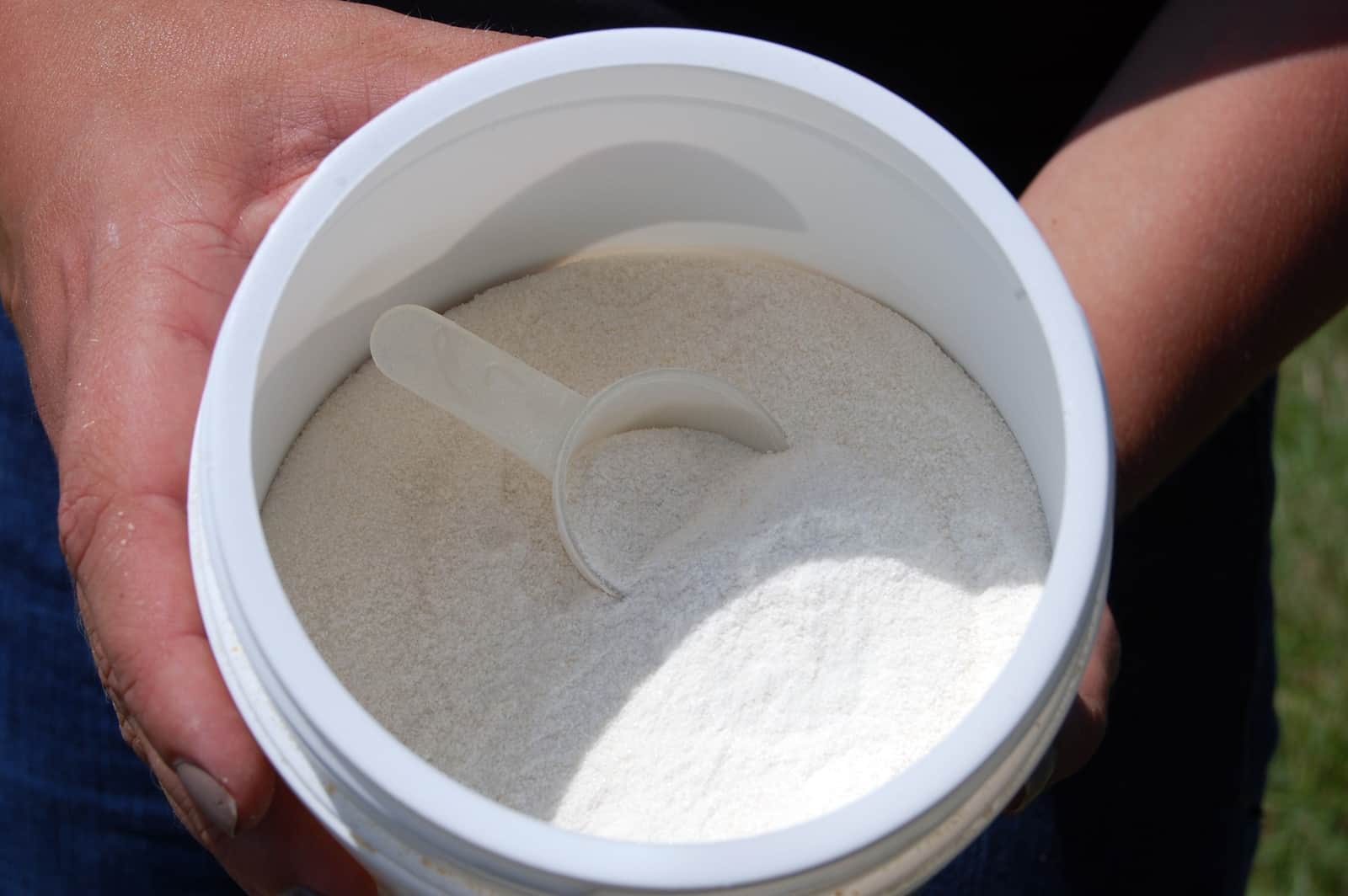
Q. I started feeding my horses 2 tablespoons of salt each day added to their rations. However, one of my horses won’t eat it. I’ve also noticed he uses much less of his salt block than my other horses. Why is he consuming less salt, and how can I make sure he’s getting enough?
A. An average-sized horse requires about 1 to 2 ounces of salt per day, depending on body weight, weather, and work level. Heavily working horses will require more than this. Horse sweat contains a lot of electrolytes, so if not replenished, body stores can decline. Because sodium is so important, the body has several mechanisms to conserve sodium when horses aren’t consuming enough.
Blood volume drops when sodium levels drop because fluid and sodium tend to follow each other. This reduction in blood volume causes decreased blood pressure, which triggers baroreceptors—mechanoreceptors (a sense organ or cell that responds to mechanical stimuli) that sense pressure changes in arterial walls. When blood pressure drops, they stimulate the nervous system as well as hormones that act on the kidneys to reduce sodium excretion through urine. Because sodium and water move together, urine with lower sodium content will be more concentrated because it also contains less water. This is why when you are dehydrated, your urine is more concentrated and a darker yellow. The darker your urine, the more dehydrated you are.
Horses adapt to lower intakes of sodium well. However, this adaptation can lead to low-level dehydration because lower circulating sodium results in reduced thirst. Low-level dehydration increases horses’ risk of heat stress, impaction colic, and muscle dysfunction. Horses have a far lower margin of error than humans, which puts those with low sodium levels at greater risk should they go through a period of heavy sweating than horses with good sodium levels.
So how to get adequate sodium into horses that won’t eat salt in their feed and don’t use a block?
Sometimes using a different type of salt can help. For example, try sea salt or mineral salt instead of table salt. Pouring a small amount of oil over the salt before mixing might coat it and make it less noticeable to the horse’s taste buds. Some horses might also find pelleted salt products more palatable. An electrolyte might be tastier to some horses, but you must make sure it contains enough salt to be effective. Some contain a lot of sugar, making them fairly ineffective. Horses might also find loose salt in a pan more attractive than a block.
Don’t suddenly add 2 tablespoons of salt to your horses’ feed if he’s not used to it. Imagine when you add too much salt to your dinner. It’s immediately unpalatable, but over time you acclimate to having more salt in your food. The same is true for you horse—you might need to back off and start again a little less aggressively.
"eat" - Google News
August 10, 2020 at 10:55PM
https://ift.tt/2CkaFCY
Help! My Horse Won't Eat Salt – The Horse - TheHorse.com
"eat" - Google News
https://ift.tt/33WjFpI
https://ift.tt/2VWmZ3q
Bagikan Berita Ini














0 Response to "Help! My Horse Won't Eat Salt – The Horse - TheHorse.com"
Post a Comment